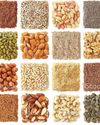
The Asia Pacific feed additives market is expected to achieve a compound annual growth rate (CAGR) of 4.69 per cent from 2019 to 2024, having been valued at $10.21 billion in 2018. A report by Market Data Forecast attributes the growth of the meat industry in emerging economies such as India and China as the major driver of this market expansion.
According to Volza’s Global Export data, India is a major exporter of feed additives, having exported 6500 shipments in the first two months of 2023 to countries such as Bangladesh, the Philippines and Vietnam. As per the report, China is the top feed additive exporter with 16,818 shipments, followed by the United States with 15,290 shipments. India stands third with 6474 global shipments of feed additives.
In 2022, western countries faced significant sanctions, resulting in Russia importing almost all feed additives from Asia. During the first nine months of 2022, Russia imported 136,000 tonnes of feed additives, marking a 25 per cent increase from the previous year.
Russian companies were initially hesitant to buy feed additives from Chinese firms, but the sanctions imposed by western countries led to a reversal of the situation. In 2022, 86 per cent of feed additives imported by Russia came from China, while imports from other Asian countries such as Indonesia and South Korea also increased. Indonesia’s feed additive export to Russia increased by 27 per cent from the previous year, while South Korea saw a 37 per cent rise in exports to Russia. In contrast, Japan’s export dropped by 77 per cent from the earlier year.
Esta historia es de la edición May 2023 de AgroSpectrum.
Comience su prueba gratuita de Magzter GOLD de 7 días para acceder a miles de historias premium seleccionadas y a más de 9,000 revistas y periódicos.
Ya eres suscriptor ? Conectar
Esta historia es de la edición May 2023 de AgroSpectrum.
Comience su prueba gratuita de Magzter GOLD de 7 días para acceder a miles de historias premium seleccionadas y a más de 9,000 revistas y periódicos.
Ya eres suscriptor? Conectar

"Arunachal holds tremendous scope for agro-food processing industries, especially in horticulture"
Arunachal Pradesh has an agriculture based economy where more than 70 per cent population is dependent on agriculture for their livelihood. As the state is endowed with enormous natural resources and suitable agro-climatic zones, the sector therefore, continues to be central to all strategies for the state's planned socio-economic development. Gabriel D Wangsu, Minister, Agriculture and Allied Sectors, Government of Arunachal Pradesh, at the recently-held 15th Agrovision 2024, spoke with AgroSpectrum on the various initiatives to boost rapid growth of agriculture sector of the state, aimed at achieving self-reliance, household food security and forging equity in income wealth distribution to rapidly reduce poverty. Edited experts;

How Biological Solutions are leading the way in Asia Pacific.
The global agriculture sector is about to enter a new era. The increase in water crises, soil degradation, and pesticide pollution is alarming.

Unlocking full potential Agri-warehousing industry to contribute to agricultural growth
India's agricultural value chain relies heavily on agri-warehousing to bridge the gap between yearround distribution and seasonal crop supply. Through the use of sustainable practices, innovation, and investment encouragement, the agri-warehousing sector may realise its full potential and make a substantial contribution to India's agricultural growth narrative.

Fruit export industry to witness unparalleled expansion with customer-focused mindset
With its extensive fruit production base and improvements in quality control, India is in a strong position to increase its market share internationally. Through the adoption of these trends and the utilisation of its innate advantages, the Indian fruit export industry might potentially achieve unparalleled expansion and make a substantial contribution to the global food chain. 2025 will see a dynamic fruit export business characterised by innovation, sustainability, and a customer-focused mindset.

The blooming Floriculture business
The floriculture market is growing due to a number of causes, including the development of organised retail and e-commerce platforms nationwide, the increase in government programmes and regulations promoting floriculture, and the ongoing improvements in agricultural methods and technology. In 2024-2032, the Indian floriculture industry is expected to increase at a compound annual growth rate (CAGR) of 11.4 per cent, up from Rs 26,210 crore in 2023, according to IMARC Group.

Agritech driving a resilient and thriving agricultural future
India's agriculture, which is the backbone of the entire economy, is undergoing a major change, which includes the use of advanced technologies.

Agritech poised to redefine agriculture in India
Despite the enormous potential of the agritech industry, issues like lack of knowledge, fragmented land ownership, and digital literacy still exist. But thanks to initiatives and rising smartphone adoption, startups are getting beyond these obstacles to spur innovation and growth. By 2025, Indian agritech companies will have resolved current agricultural problems and established a standard for the global agritech industry.

Building a resilient Edible Oil Seed ecosystem with long-term strategic goals.
India is a major producer of oilseeds, but its average yield is much lower than the global standard. In order to meet its domestic demand, India imports edible oil at a cost of around $16 billion a year. The industry can achieve sustainable growth and adjust to a constantly shifting global environment with careful planning and focused execution.

High protein to drive Poultry sector growth
Urbanisation, increased wages, and consumer preferences for high-protein diets are all predicted to contribute to the 9 per cent growth in the Indian poultry industry in 2025. A rapidly growing sector of the Indian agricultural economy, the poultry industry provides the nation with affordable, high-quality protein.

Innovative production techniques to boost Fisheries productivity
The Indian economy depends heavily on the fishing industry.